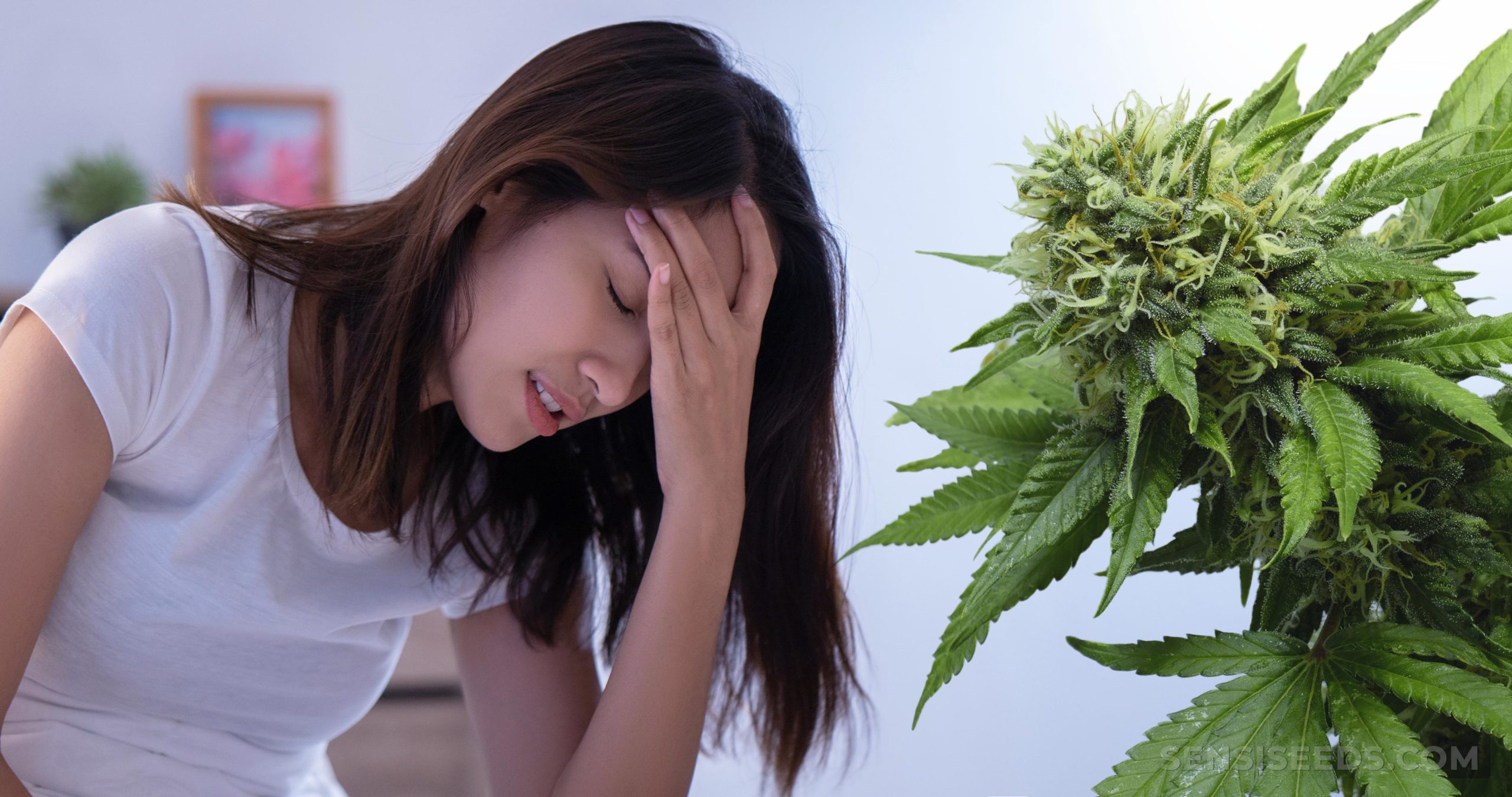Many people turn to marijuana as a headache and migraine treatment. But it might also exacerbate or cause them. Thankfully, there are strategies for both treating and avoiding marijuana headaches altogether. It is imperative to have an MMJ card in order to legally access marijuana without facing any legal ramifications if you intend to include it in your medical regimen.
What Triggers Marijuana-Related Headaches?
Either a marijuana withdrawal or a hangover is typically the cause of marijuana headaches. Whether or not you get headaches when using cannabis may also depend on the strain.
Marijuana Hangovers
The day after consuming alcohol or marijuana, you might experience hangover symptoms. A headache is one of the potential signs of a cannabis hangover. Similar to alcohol, dehydration is a common cause of headaches that can usually be relieved by drinking water.
Withdrawal from Marijuana
After heavy or prolonged marijuana use, abruptly quitting might result in mild withdrawal symptoms, sometimes referred to as cannabis withdrawal syndrome. You may experience headaches or migraines as withdrawal signs. According to one study, headaches were experienced by 23% of individuals going through cannabis withdrawal.
The week following cannabis cessation is typically when withdrawal headaches get worse, and they usually get better about 10–20 days later.
For those who use cannabis as a headache or migraine treatment, stopping the drug can also result in rebound headaches, also referred to as “medication overuse headaches.”
Types of Cannabis That May Trigger Headaches
THC-rich products can give rise to headaches and migraines over short periods of time. Hash and concentrate are two examples.
Coughing can occur from the ash produced when smoking cannabis. Coughing and breathing in ash can both cause headaches. For some people, smoking and vaping can exacerbate sinus headaches.
It’s also possible—though less frequently—to get a headache after using CBD products.
Comparing Hangovers: Weed vs. Alcohol
When you awaken from a cannabis hangover, you might feel like you have the following symptoms:
- Brain fog
- Feeling groggy
- Feeling less alert
Along with these symptoms, you might also get headaches, nausea, dry eyes, a dry mouth, exhaustion, and a slow memory.
The signs and symptoms of an alcohol hangover are comparable. You might suffer from extreme nausea and vomiting, headaches, dehydration, poor memory, trouble focusing, anxiety, and lightheadedness when you have an alcohol hangover.
Although the symptoms are similar, the body reacts to a hangover from cannabis and alcohol differently. Generally speaking, a cannabis hangover is milder and easier to handle than an alcohol hangover. Alcohol is a toxin, but cannabis isn’t, so weed hangovers don’t have the same effect on the liver as alcohol hangovers do.
Symptoms
The type of headache you have can affect the symptoms of a cannabis headache. Additionally, keep in mind that you might also experience the accompanying symptoms if your headache is the result of a cannabis withdrawal or hangover.
- Cluster Headaches
Some people may experience cluster headaches after using cannabis. Usually affecting one side of the head, these headaches typically occur around the eye.
- Migraine Headaches
Cannabis use may aggravate or trigger migraine pain. In addition to pain, other symptoms of a migraine may include light sensitivity, nausea, vomiting, spots or flashes in the vision, and a temporary loss of vision.
- Sinus Headache
As previously noted, sinus headaches can be brought on by cannabis smoking or vaping. These are
How to Treat Headaches Caused by Marijuana
There are several methods you can try to treat marijuana-induced headaches. In the end, what suits one individual might not suit another. Sometimes the best course of action is to combine the following treatments:
1. Stay hydrated
Dehydration is not a direct cause of cannabis use, but it is associated with headaches. When you have a headache, sipping a few glasses of water could help ease it.
2. Take pain relief
Medications available over-the-counter can aid in headache relief. These consist of ibuprofen, paracetamol, and aspirin. If you decide to take medication, make sure you take the recommended dosage and seek medical advice if you are unsure about anything.
3. Eat something
After using cannabis, eating is especially crucial if you wake up the next morning hangovered. Make an effort to eat a balanced breakfast that includes protein, carbs, and a healthy fat source.
4. Caffeine
Headaches can be alleviated by caffeine. But remember that some people’s headaches can get worse when they take too much caffeine, so use moderation.
5. Massage and apply a cold compress
One way to lessen headache pain is to massage your head and temples. Putting a cold compress on your head could also be beneficial.
Prevention
The easiest way to avoid the headaches associated with cannabis use is to avoid it altogether. If you still want to use cannabis, there are ways you might be able to stop it from happening.
To avoid the negative effects of cannabis use on your health, such as a marijuana hangover that can include a headache, you could:
- Select less potent strains: Selecting THC-to-CBD cannabis products or strains with lower THC concentrations may help avoid headaches.
- Alter the way you use cannabis: Since smoking and coughing can aggravate headaches, opting for non-smoking cannabis ingestion methods may help avoid cannabis hangovers and their accompanying symptoms, like headaches.
- Decrease the frequency of cannabis use: You might want to cut back on the amount of time you consume cannabis if it gives you headaches. Steer clear of cannabis use most days of the week or daily.
- Drink plenty of water: Both a treatment and a preventative measure for headaches are to stay hydrated. Water should always be consumed prior to, during, and following cannabis use.
- Avoid mixing products: Don’t combine alcohol and cannabis. This may lessen the chance of a hangover or headache that either may bring on.
Ending Words!
While some individuals use medical marijuana to treat headaches and migraines, others may get headaches as a result of coughing up cannabis ash, going through withdrawal after long-term, heavy use, or experiencing symptoms of a hangover the day after using marijuana. It is always advised to consult an online marijuana doctor before you start consuming marijuana.
Drinking water, eating, applying a cool compress to your head, massaging your temples, and taking over-the-counter medication if necessary are the best ways to treat headaches. Additionally, you might be able to avoid headaches by cutting back on how often you use cannabis and altering your intake method.



